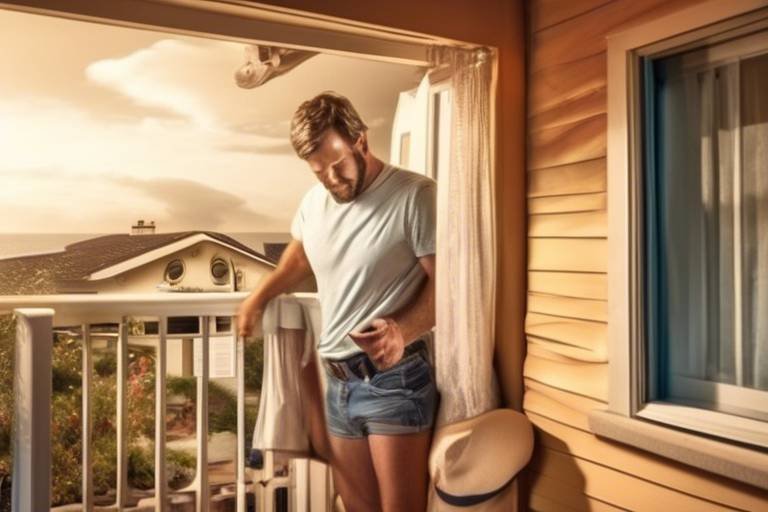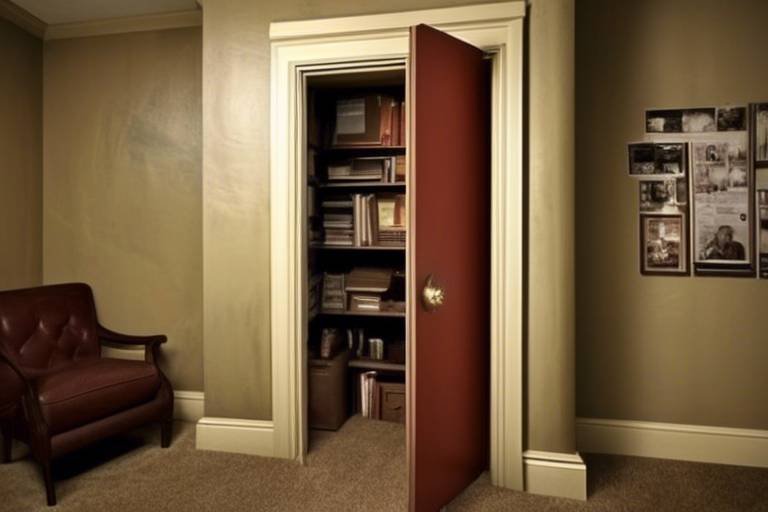Home Security: Pros and Cons of Security Cameras
In today's world, home security is more important than ever. With rising crime rates and increasing concerns for personal safety, many homeowners are turning to security cameras as a viable solution. But what exactly are the pros and cons of using security cameras for home protection? In this article, we'll explore the various advantages and disadvantages of these devices, helping you make an informed decision about whether they are right for your home.
One of the most significant benefits of security cameras is their ability to deter crime. The mere presence of a camera can make potential intruders think twice before attempting a break-in. But the advantages don't stop there. Security cameras also offer real-time monitoring, allowing homeowners to keep an eye on their property from anywhere in the world. Whether you're at work, on vacation, or simply out for the day, you can access live feeds from your cameras through your smartphone or computer. This feature provides peace of mind, knowing that you can check on your home at any time.
Additionally, security cameras are invaluable for evidence collection. In the unfortunate event of a crime, having recorded footage can be crucial for law enforcement and insurance claims. It’s like having your own personal witness that never sleeps. With advanced technology, many modern cameras come equipped with features like motion detection, night vision, and even facial recognition, making them even more effective in protecting your home.
While the benefits of security cameras are considerable, they also come with a set of privacy concerns. Homeowners must navigate the delicate balance between ensuring their safety and respecting the privacy of others. For instance, if your camera captures footage of your neighbor's property, it could lead to uncomfortable situations or even legal ramifications. It's essential to be aware of how your camera's field of view may intrude on others' privacy.
The legality of using security cameras can vary significantly depending on your location. Homeowners should familiarize themselves with local laws regarding surveillance to avoid potential legal issues. In some areas, recording audio without consent is illegal, while in others, it may be permissible. Understanding these regulations can prevent headaches down the line.
Another critical aspect to consider is the distinction between public and private spaces. Cameras installed in public areas may have different legal restrictions compared to those placed in private residences. For example, monitoring your front yard is typically acceptable, but pointing a camera towards a neighbor's yard could cross a line. Always ensure that your surveillance practices comply with local laws.
Establishing clear recording and storage policies for your security footage is vital. How long will you keep the recordings? Are you storing them securely? These questions are essential for compliance and privacy. Many homeowners opt for cloud storage solutions, but it's crucial to choose a provider that prioritizes data protection and privacy.
The world of security cameras is evolving rapidly. Recent advancements in technology, such as smart features and high-definition video, have significantly enhanced their effectiveness. For instance, some cameras can send alerts to your phone when they detect motion, allowing you to respond quickly to potential threats. Homeowners should explore these innovations to maximize the effectiveness of their home security systems.
When considering security cameras, cost is a significant factor. The initial investment can vary widely depending on the brand, features, and installation method. Homeowners should evaluate their budgets carefully and consider both the upfront expenses and long-term maintenance costs. It's essential to remember that while some systems may be cheaper initially, they might not offer the same level of security or features as more expensive models.
Another important decision is whether to opt for DIY installation or hire professionals. DIY can save you money, but it requires a certain level of technical skill and knowledge of your home’s layout. On the other hand, professional installation may cost more, but it often ensures that your system is set up correctly and functioning optimally. Weighing the pros and cons of each option is crucial in making the best choice for your needs.
Investing in security cameras can provide long-term value for homeowners. Not only can they enhance your home’s security, but they may also lower your insurance premiums and even increase your property value. When considering security enhancements, it's essential to assess the potential return on investment, as the benefits can extend far beyond just peace of mind.
- Do security cameras really deter crime? Yes, the presence of security cameras can significantly reduce the likelihood of criminal activity.
- Are there privacy laws regarding security cameras? Yes, privacy laws vary by location, so it’s essential to be aware of local regulations.
- What features should I look for in a security camera? Look for features like high-definition video, night vision, motion detection, and remote access.
- Is DIY installation worth it? It can save money, but ensure you have the necessary skills to install the system correctly.
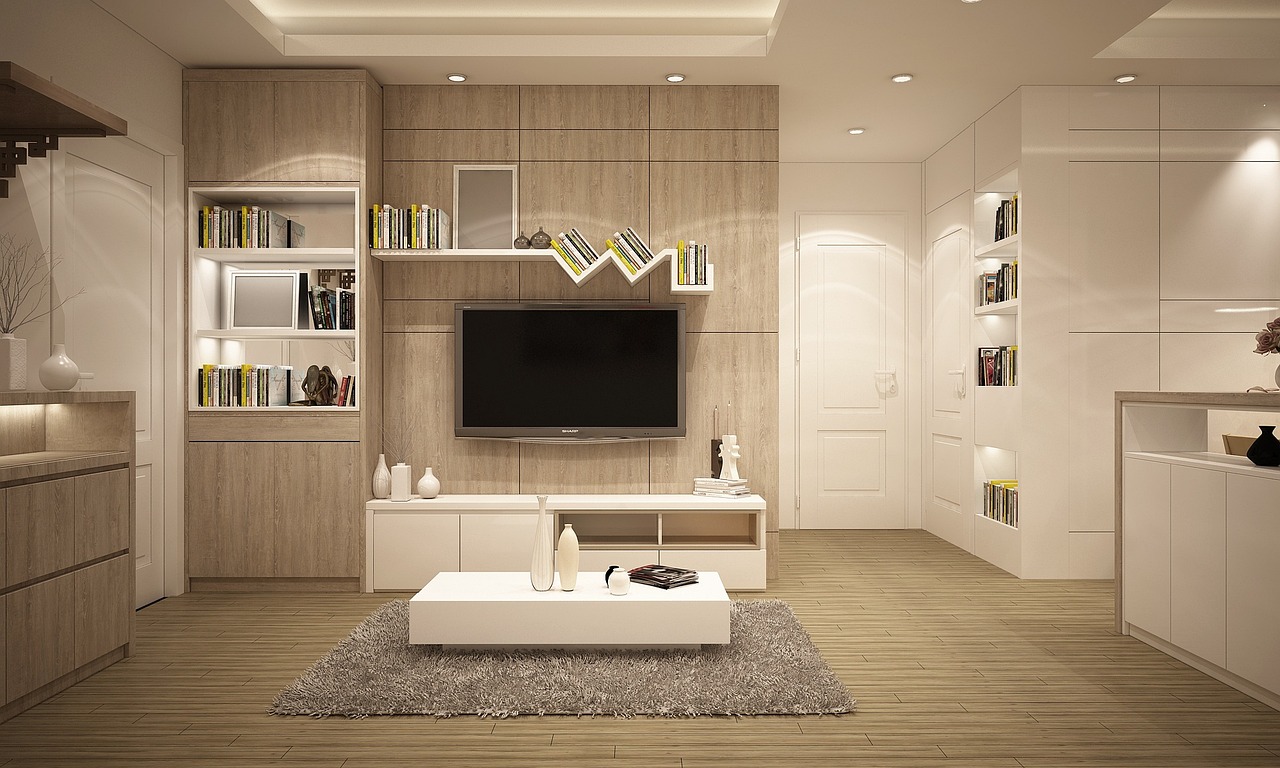
Benefits of Security Cameras
When it comes to enhancing the safety of your home, security cameras are like a vigilant guardian, always watching over your property. One of the most significant benefits of having security cameras is their ability to act as a deterrent to crime. Just the mere presence of a camera can make potential intruders think twice before attempting to break into your home. It’s like putting up a “Beware of Dog” sign even if you don’t own a dog; it creates a sense of caution that many criminals prefer to avoid.
In addition to deterring crime, security cameras offer real-time monitoring. Imagine being able to check in on your home while you’re at work or on vacation. With modern technology, you can easily access live feeds from your security cameras through your smartphone or computer. This level of accessibility not only provides peace of mind but also allows you to respond quickly to any suspicious activity. For instance, if you notice someone loitering around your property, you can alert the authorities immediately.
Moreover, security cameras play a crucial role in evidence collection. In the unfortunate event of a crime, having recorded footage can be invaluable. It can help law enforcement identify suspects and provide crucial evidence in court. This not only increases the chances of recovering stolen property but also helps in bringing criminals to justice. Consider it a digital witness that never forgets; it captures every detail, from the time of the incident to the appearance of the intruder.
Beyond just providing security, many modern cameras come equipped with smart features such as motion detection and night vision capabilities. These advancements mean you can receive alerts on your phone whenever movement is detected, ensuring you’re always in the loop, no matter where you are. Additionally, with features like two-way audio, you can communicate with anyone on your property, whether it’s a delivery person or a potential intruder. This level of interaction adds another layer of security that traditional systems simply can’t offer.
In summary, the benefits of security cameras extend far beyond mere surveillance. They serve as a deterrent to crime, provide real-time monitoring, assist in evidence collection, and come with advanced technological features that enhance their effectiveness. Investing in a security camera system can significantly contribute to the safety and security of your home, making it a wise decision for any homeowner.
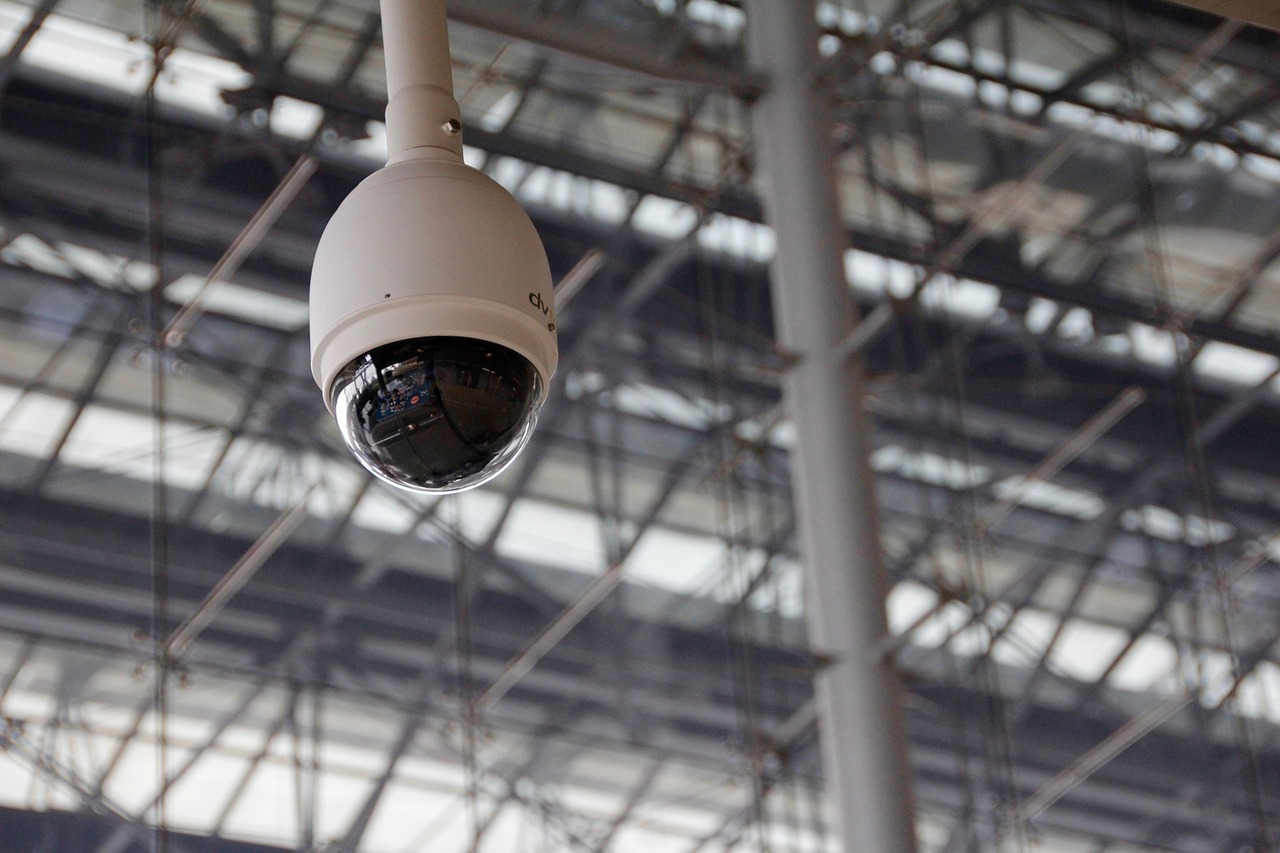
Privacy Concerns
When it comes to installing security cameras around your home, one of the biggest issues that often arises is the question of privacy. While these devices serve a crucial role in enhancing safety and providing peace of mind, they can also lead to a slippery slope of privacy invasions. Imagine a world where every corner of your home is under constant surveillance; it can feel a bit like living in a fishbowl, don’t you think? Finding the right balance between security and personal privacy is essential for homeowners.
It's important to recognize that the presence of security cameras can evoke a variety of feelings among family members, guests, and even neighbors. While some may feel safer knowing they are being monitored, others might feel uncomfortable or even paranoid about being watched. This leads to a fundamental question: How much surveillance is too much? This is where homeowners must tread carefully. Are you merely protecting your property, or are you infringing on the personal space of others?
Additionally, there are legal implications to consider. The legality of using security cameras can vary significantly depending on your location. In some areas, you may be required to inform people that they are being recorded, especially in places where they have a reasonable expectation of privacy, such as their own backyard or a shared common area. Homeowners should familiarize themselves with local laws regarding surveillance to avoid potential legal issues. For instance, in many jurisdictions, it is illegal to record audio without consent, even if the video recording is permitted.
Understanding the distinction between public and private spaces is crucial when setting up security cameras. Cameras installed in public areas, such as streets or parks, generally have fewer legal restrictions compared to those placed in private residences. However, homeowners must still be cautious about where they point those lenses. For example, if your camera inadvertently captures footage of your neighbor's yard or their children playing, you could be stepping into murky legal waters. It’s essential to set camera angles and placements that respect the privacy of others while still protecting your own property.
Another aspect to consider is the recording and storage policies for your security footage. Homeowners should establish clear guidelines regarding how long recordings will be retained and who has access to them. For instance, keeping footage for an extended period could raise privacy concerns, especially if it captures individuals who haven’t consented to being recorded. Moreover, ensuring that this data is stored securely is vital to prevent unauthorized access. A breach of security could lead to sensitive footage being exposed, which not only compromises privacy but could also lead to legal repercussions.
In conclusion, while security cameras can significantly enhance home safety, they also bring forth a myriad of privacy concerns that cannot be overlooked. Homeowners must navigate these challenges carefully, balancing the need for security with the rights of individuals to maintain their privacy. It’s a delicate dance that requires thoughtfulness and a strong understanding of local laws, as well as a commitment to ethical surveillance practices.
- Are security cameras legal in residential areas? Yes, but homeowners should be aware of local laws regarding surveillance and privacy.
- Can I install cameras in my backyard? Yes, but make sure they do not infringe on the privacy of your neighbors.
- How long should I keep security footage? This varies by location, but it's generally recommended to keep recordings for a limited time unless necessary for ongoing investigations.
- What should I do if my camera captures footage of someone without their consent? It's best to review your local laws and, if necessary, delete the footage to respect privacy rights.

Legal Implications
When it comes to installing security cameras around your home, understanding the is crucial. The laws governing the use of surveillance cameras can vary significantly from one location to another, making it essential for homeowners to be informed about their local regulations. In many jurisdictions, you have the right to install cameras on your property, but there are specific rules you must follow to avoid potential legal headaches.
For instance, while you can monitor your own property, recording audio may be subject to stricter laws than video surveillance. In some areas, it is illegal to record conversations without the consent of all parties involved. This is where things can get a bit tricky. Imagine setting up a camera to protect your home, only to find out later that you’ve inadvertently violated someone’s privacy rights. It’s a scenario that no one wants to face, and it underscores the importance of understanding the legal landscape before proceeding.
Moreover, the distinction between public and private spaces plays a significant role in determining what is permissible. Cameras placed in public areas, like streets or parks, typically have fewer restrictions compared to those installed in private residences. Homeowners should be aware that while they can monitor their front porch, pointing a camera into a neighbor’s yard could lead to legal disputes. It’s all about finding that balance between ensuring your safety and respecting the privacy of others.
To help clarify the legal landscape, here’s a brief overview of some key considerations:
- Recording Consent: Know whether your state requires consent for audio recordings.
- Public vs. Private Areas: Understand where you can legally place cameras without infringing on others' privacy.
- Data Retention: Familiarize yourself with laws regarding how long you can keep recorded footage.
In addition to these considerations, it’s wise to establish clear recording and storage policies for your security footage. This not only helps in compliance with the law but also ensures that you’re protecting the privacy of those captured in your recordings. Knowing how long to retain footage, and under what conditions it can be shared, is essential for maintaining trust and legality.
In summary, the legal implications of using security cameras are multifaceted and require careful consideration. By being proactive and informed, homeowners can enjoy the peace of mind that comes with enhanced security, while also respecting the rights of others in their community.
- Do I need consent to install security cameras? It depends on your local laws. Generally, you do not need consent for video recording in public areas, but audio recording may require it.
- Can I point my camera at my neighbor's property? No, it’s advisable to avoid pointing cameras into a neighbor's yard as this can lead to privacy violations.
- How long can I keep security footage? This varies by jurisdiction. Check local laws to determine the appropriate retention period for your recordings.
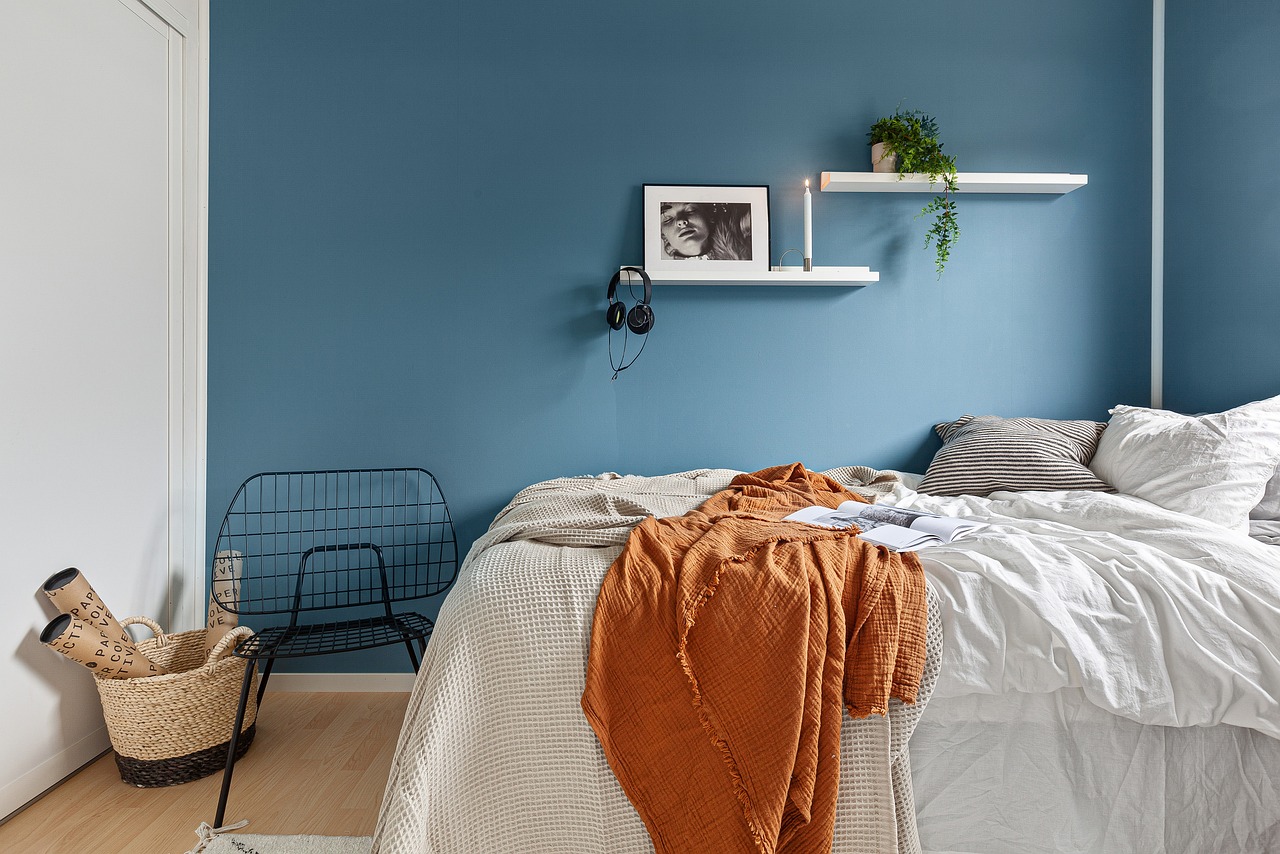
Public vs. Private Spaces
When it comes to installing security cameras, understanding the distinction between public and private spaces is essential for homeowners. This differentiation not only affects the legality of camera placement but also influences the overall effectiveness of your home security system. In a nutshell, public spaces are areas where individuals have a reduced expectation of privacy, such as sidewalks, parks, or streets, while private spaces are those where people typically expect privacy, like inside their homes or in their backyards.
For instance, placing a camera in your front yard that captures the sidewalk may generally be acceptable, as it monitors an area accessible to the public. However, if that camera inadvertently captures footage from your neighbor’s property or private areas, it could lead to potential legal issues. Homeowners must be vigilant about the angles and range of their cameras to avoid infringing on others’ privacy rights.
Moreover, the legal implications of camera placement can vary significantly based on local laws. In some regions, recording audio alongside video can be illegal without consent, while others might have strict regulations on monitoring public spaces. Therefore, it’s crucial to research your local laws before installing cameras in areas that may border public and private domains.
To illustrate this point, consider the following table that outlines some common differences between public and private spaces regarding security camera usage:
| Aspect | Public Spaces | Private Spaces |
|---|---|---|
| Expectation of Privacy | Low | High |
| Legal Restrictions | Generally fewer restrictions | More restrictions, especially regarding audio |
| Purpose of Surveillance | Crime deterrence and monitoring | Personal property protection |
| Consent Requirements | Often not needed | May require consent from individuals recorded |
In conclusion, it’s vital for homeowners to carefully consider where they choose to place their security cameras. Balancing the need for safety with respect for privacy rights can be challenging, but it’s a necessary part of responsible home security management. By being informed about the nuances of public versus private spaces, you can make better decisions that not only protect your property but also maintain good relationships with your neighbors.
- Can I install a security camera facing my neighbor's house? No, this could infringe on their privacy rights.
- Are there specific laws regarding audio recording with security cameras? Yes, laws vary by location, and many places require consent for audio recording.
- What should I do if my camera captures footage of a public area? Generally, it’s acceptable, but ensure it doesn’t infringe on others’ privacy.
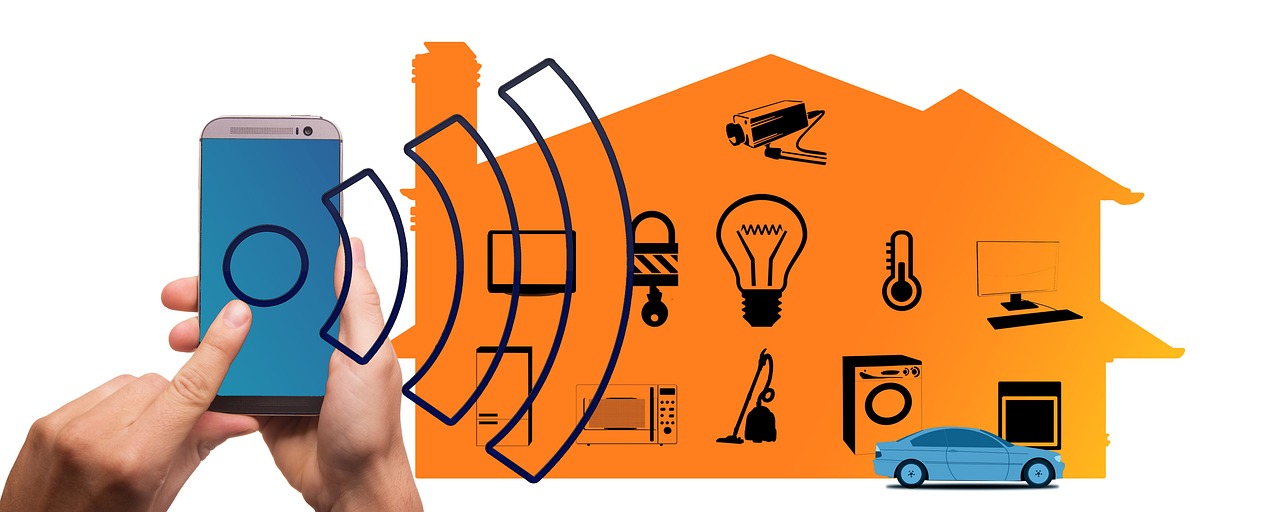
Recording and Storage Policies
When it comes to security cameras, establishing clear is essential for any homeowner. These policies not only dictate how long footage is retained but also ensure that sensitive data is protected. Imagine installing a state-of-the-art security system, only to find out later that your recordings could be compromised or misused. To avoid such scenarios, it's crucial to lay down guidelines that are both compliant with the law and respectful of privacy.
First and foremost, homeowners should consider the duration for which they intend to store recordings. Many security systems come with customizable settings, allowing users to choose how long footage is saved before being overwritten. A common practice is to retain recordings for a minimum of 30 days, as this timeframe often balances the need for evidence collection with storage limitations. However, depending on individual circumstances, some may opt for longer retention periods.
Next, it’s vital to implement data protection measures. This includes securing access to recorded footage and ensuring that only authorized individuals can view or manage the data. Utilizing strong passwords, encryption, and regularly updating software can significantly reduce the risk of unauthorized access. Think of your security footage as a treasure chest; without a sturdy lock and a trusted keyholder, it’s vulnerable to theft.
Additionally, homeowners should familiarize themselves with local laws regarding surveillance footage. In some areas, there are strict regulations surrounding the retention and sharing of video recordings. For instance, if a camera captures footage of a neighbor or passerby, homeowners must be cautious about how that footage is used or shared. Understanding these legal frameworks can save homeowners from potential legal headaches down the road.
Finally, consider creating a policy document that outlines all aspects of your recording and storage practices. This document should include:
- The duration of footage retention
- Access controls and security measures
- Guidelines for reviewing and deleting footage
- Compliance with local laws
Having a clear policy not only provides peace of mind but also serves as a reference point should any questions or disputes arise in the future. In a world where technology is advancing rapidly, staying informed and proactive about your security camera policies is not just a good idea; it’s a necessity.
1. How long should I keep my security camera footage?
Most homeowners retain footage for at least 30 days, but this can vary based on individual needs and local regulations.
2. Can I use security footage for legal purposes?
Yes, security footage can be used as evidence in legal situations, but it’s important to ensure that you are complying with local laws regarding privacy and surveillance.
3. What security measures should I implement for my recordings?
Implement strong passwords, use encryption, and regularly update your system to protect against unauthorized access.
4. Are there any regulations I should be aware of?
Yes, regulations vary by location. Familiarize yourself with local laws regarding surveillance to avoid legal issues.

Technological Advancements
In recent years, the landscape of home security has been dramatically transformed by . Security cameras are no longer just static devices that record footage; they have evolved into sophisticated systems equipped with a plethora of smart features. Imagine being able to monitor your home from anywhere in the world, receiving instant alerts on your smartphone, and even having the ability to communicate with visitors at your door—all thanks to the latest innovations in security camera technology.
One of the most notable advancements is the integration of smart technology. Many modern security cameras now come with features such as motion detection, which allows the camera to send real-time alerts when movement is detected. This is not just a simple notification; it can trigger a series of actions, like turning on lights or activating an alarm system. Additionally, many cameras now offer two-way audio, enabling homeowners to speak directly to anyone on their property through their smartphone or tablet. This feature can be particularly useful for deterring potential intruders or simply communicating with delivery personnel.
High-definition video quality is another significant improvement. Gone are the days of grainy, low-resolution footage that makes it difficult to identify individuals. Today's security cameras often feature 4K resolution and advanced night vision capabilities, providing clear images even in low-light conditions. This clarity is crucial not only for monitoring your property but also for providing reliable evidence in case of an incident.
Moreover, the advent of cloud storage solutions has revolutionized how homeowners manage their security footage. Instead of relying on local storage devices that can be tampered with or damaged, many systems now offer secure cloud storage options. This means that your footage can be accessed from anywhere, and you won't have to worry about losing important recordings due to hardware failure. However, it’s essential to choose a provider that prioritizes data security and privacy.
In addition to these features, some cameras are now equipped with AI technology that allows them to learn and adapt to their environment. For example, AI can help differentiate between a human, an animal, or a vehicle, reducing the number of false alarms triggered by pets or passing cars. This smart capability ensures that homeowners can focus on real threats without being inundated with unnecessary notifications.
To summarize, the technological advancements in security cameras have significantly enhanced their effectiveness and usability. Homeowners can now enjoy a level of convenience and security that was previously unimaginable. As you consider upgrading your home security system, keep an eye out for these innovations, as they can provide you with greater peace of mind and a more robust defense against potential threats.
- What features should I look for in a security camera? Look for high-definition video quality, night vision, motion detection, and two-way audio capabilities.
- Are security cameras easy to install? Many modern cameras offer DIY installation options, but professional installation can provide peace of mind if you're unsure about the process.
- How long can I store footage from my security cameras? This depends on your storage solution; cloud services often allow for longer retention periods compared to local storage.
- Can I access my security footage remotely? Yes, most modern security cameras allow you to view live feeds and recorded footage via a smartphone app.

Cost Considerations
When it comes to enhancing your home security with cameras, cost is a significant factor that can't be overlooked. The initial investment can range widely based on the type of system you choose, from basic models to advanced setups with smart features. It's essential to understand that while some systems may seem affordable at first glance, they might come with hidden costs that can add up over time. For instance, consider the expenses related to installation, maintenance, and potential upgrades.
To give you a clearer picture, let's break down the typical costs associated with security cameras:
| Item | Estimated Cost |
|---|---|
| Basic Security Camera | $50 - $200 |
| High-Definition Camera | $200 - $500 |
| Smart Security System | $500 - $1,500 |
| Installation (DIY) | Free - $100 |
| Installation (Professional) | $100 - $300 |
| Monthly Monitoring Fee | $10 - $50 |
As you can see, there’s a broad spectrum of costs associated with security cameras. It's crucial to decide what features matter most to you. Do you want a simple camera that records only when motion is detected, or are you looking for a comprehensive system that includes live streaming, alerts, and even integration with other smart home devices? Your choices will directly influence your budget.
Another important aspect to consider is whether to go the DIY route or hire professionals for installation. DIY installations can save you money, but they require a certain level of technical skill. If you're not comfortable setting up the system yourself, hiring a professional might be worth the extra cost, ensuring that everything is installed correctly and functions as intended.
Additionally, think about the long-term value of your investment. While the upfront costs might be high, having a security camera system can potentially lower your home insurance premiums. Many insurance companies offer discounts for homeowners who take proactive measures to secure their properties. Over time, this can lead to significant savings, making the system more cost-effective in the long run.
Ultimately, when evaluating the costs of security cameras, it's essential to weigh the initial investment against the potential benefits. Consider how much peace of mind is worth to you. After all, investing in your home’s security is not just about preventing theft; it’s about creating a safe environment for you and your loved ones.
- How much should I expect to spend on a home security camera system?
The cost can vary significantly based on the type and features of the system, ranging from $50 for basic models to over $1,500 for advanced setups. - Is DIY installation a good idea?
It depends on your comfort level with technology. DIY can save money, but professional installation ensures everything is set up correctly. - Can security cameras lower my insurance premiums?
Yes, many insurance companies offer discounts for homes equipped with security measures, including cameras. - What features should I look for in a security camera?
Consider features like high-definition video, night vision, motion detection, and smart home integration based on your needs.
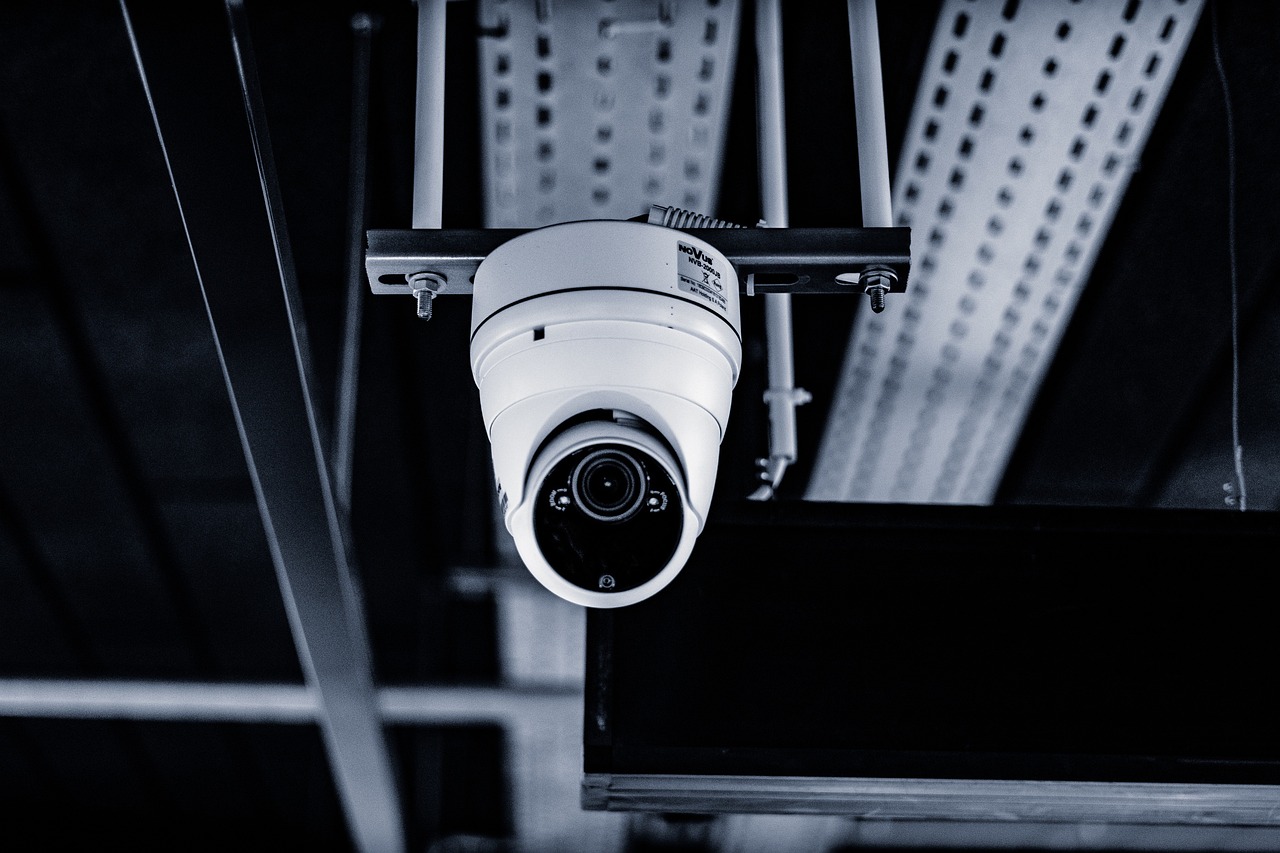
DIY vs. Professional Installation
When it comes to installing security cameras, homeowners often find themselves at a crossroads: should they go the DIY route or hire a professional installation service? This decision can significantly impact not only the overall cost but also the effectiveness of the security system. Let's dive into the pros and cons of both options to help you make an informed choice.
One of the biggest advantages of DIY installation is the potential for cost savings. By taking on the installation yourself, you can avoid labor costs that can sometimes be hefty. Many modern security cameras come with user-friendly instructions and even mobile apps that guide you through the setup process. If you're tech-savvy and enjoy a bit of hands-on work, this could be a rewarding project that not only saves you money but also gives you a sense of accomplishment.
However, DIY installation isn't without its challenges. For instance, if you’re not familiar with electrical systems or the intricacies of camera positioning, you might end up with a less effective security setup. Poorly placed cameras could result in blind spots or inadequate coverage, leaving your home vulnerable. Additionally, troubleshooting technical issues can be a hassle if you're not experienced in tech installation.
On the other hand, opting for professional installation can provide peace of mind. Professionals have the expertise to assess your home and determine the best camera placement for maximum coverage. They can also handle any technical complexities, ensuring that everything is set up correctly from the get-go. This can be especially beneficial for homeowners who may not have the time or inclination to deal with the installation process.
However, hiring professionals does come with a price tag. It's essential to consider whether the added expense fits within your budget. Moreover, you might want to research and choose a reputable installation company to avoid any subpar service. To help you weigh your options further, here’s a quick comparison:
| Aspect | DIY Installation | Professional Installation |
|---|---|---|
| Cost | Lower initial investment | Higher cost due to labor |
| Time | Variable; depends on skill level | Typically quicker; professionals are efficient |
| Expertise | Requires some technical knowledge | Expertise in installation and troubleshooting |
| Customization | Full control over setup | May offer limited customization options |
Ultimately, the choice between DIY and professional installation boils down to your personal preferences, budget, and technical capabilities. If you're confident in your skills and want to save some cash, DIY might be the way to go. But if you'd rather have a foolproof setup and don’t mind spending a little extra, professional installation could be worth the investment.
- What is the average cost of professional installation? The cost can vary widely based on the complexity of the system and the service provider, but you can expect to pay anywhere from $100 to $500.
- Can I install security cameras myself? Yes, many modern security cameras are designed for easy DIY installation, but it requires some basic technical skills.
- How long does installation take? DIY installations can take a few hours, while professional installations may be completed in a couple of hours depending on the system.
- What if I need help after installation? Many professional services offer ongoing support, while DIY systems typically rely on online resources and customer service.
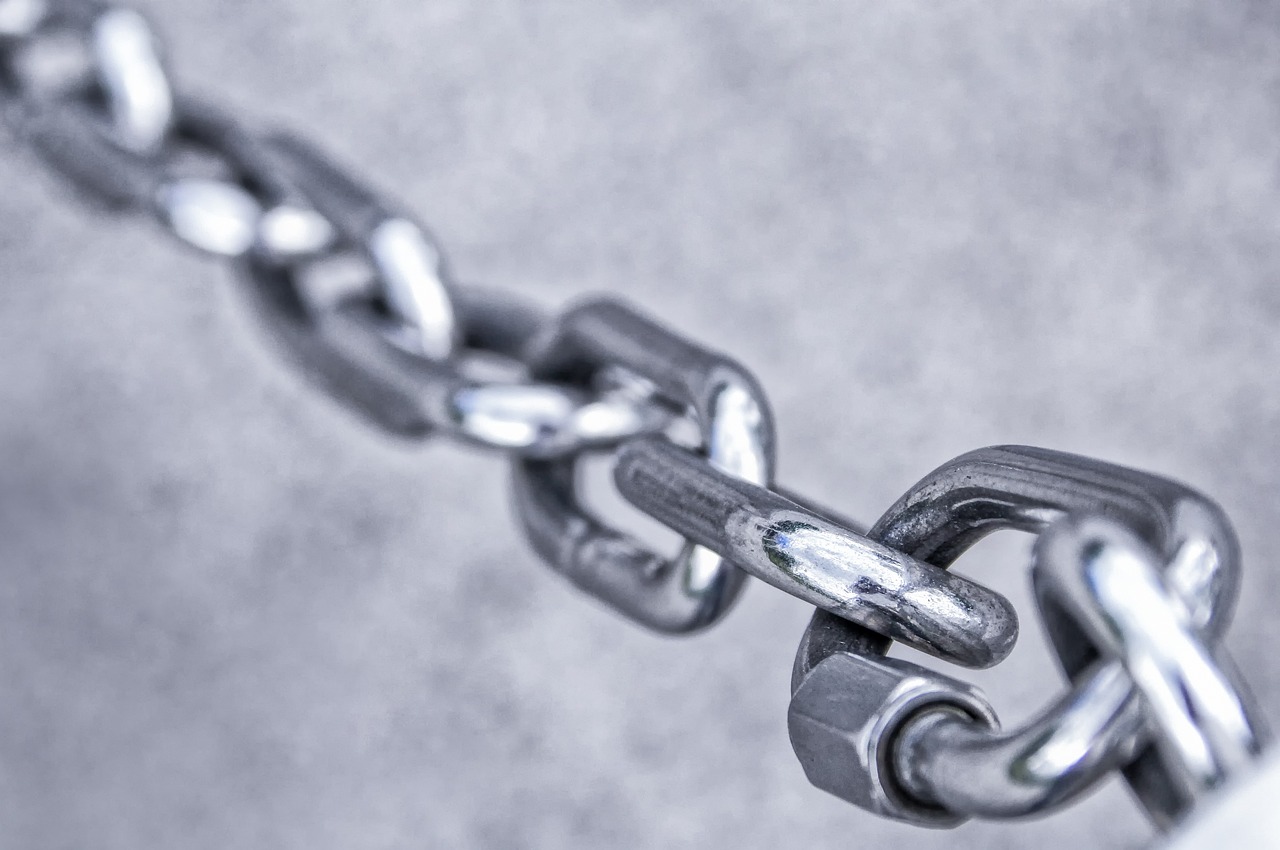
Long-term Value
When considering the of security cameras, homeowners often overlook the substantial benefits they can bring beyond mere surveillance. Installing security cameras is not just about keeping an eye on your property; it’s an investment that can yield significant returns in various forms. For starters, many insurance companies offer discounts on premiums for homes equipped with security systems, including cameras. This means that the initial cost of installation can often be recouped over time through reduced insurance payments. Imagine saving hundreds of dollars each year simply because you took a proactive step in securing your home!
Moreover, the presence of security cameras can enhance the overall value of your property. In today’s real estate market, potential buyers are increasingly looking for homes that offer modern security features. Homes with established security systems are often seen as more desirable, leading to a higher resale value. This is particularly relevant in neighborhoods where crime rates are a concern; a well-secured home can stand out as a safe haven. Think of it like adding a new kitchen or bathroom; it’s an upgrade that appeals to buyers and can pay off in the long run.
Another aspect to consider is the peace of mind that comes with knowing your home is monitored. This psychological benefit can’t be quantified in dollars, but it’s invaluable. Homeowners can rest easier, knowing that they have taken steps to protect their loved ones and belongings. This sense of security can enhance the quality of life, reducing stress and anxiety related to potential threats.
In addition, advancements in technology mean that many modern security cameras come equipped with features that allow for remote monitoring via smartphones or tablets. This not only adds convenience but also increases the functionality of your security system. Homeowners can check in on their property from anywhere, which is especially useful for those who travel frequently or own multiple properties.
| Benefit | Description |
|---|---|
| Insurance Discounts | Many insurers offer lower premiums for homes with security systems, leading to long-term savings. |
| Increased Property Value | Homes with security features are often more attractive to buyers, potentially raising resale prices. |
| Peace of Mind | Knowing your home is secure reduces stress and enhances overall well-being. |
| Remote Monitoring | Modern cameras allow homeowners to monitor their property from anywhere, adding convenience. |
In conclusion, investing in security cameras is not just about immediate protection; it’s a strategic move that can yield long-term benefits for homeowners. By enhancing property value, providing insurance savings, and offering peace of mind, security cameras can be a wise investment in both safety and financial stability.
- Do security cameras really deter crime? Yes, numerous studies have shown that the presence of security cameras can significantly reduce the likelihood of criminal activity.
- How long should I keep security camera footage? It's recommended to keep footage for at least 30 days, but this can vary based on local laws and personal preference.
- Are there legal restrictions on where I can place security cameras? Yes, laws vary by location, and it's important to understand the regulations regarding surveillance in your area.
- Can I install security cameras myself? Absolutely! Many systems are designed for DIY installation, but professional installation can ensure optimal placement and functionality.
- Will installing security cameras increase my home insurance premium? Typically, no. In fact, it may lower your premium due to the added security measures.
Frequently Asked Questions
- What are the main benefits of installing security cameras in my home?
Security cameras can serve as a powerful deterrent against crime, providing peace of mind for homeowners. They allow for real-time monitoring of your property, enabling you to keep an eye on your home even when you're away. Additionally, in the unfortunate event of a crime, these cameras can provide crucial evidence that can aid law enforcement in their investigations.
- Are there any privacy concerns associated with security cameras?
Absolutely! While security cameras enhance safety, they can also raise significant privacy issues. It's essential to balance the need for security with the rights of others. Homeowners should be mindful of where they place cameras to ensure they don't infringe on neighbors' privacy or capture footage in areas where people expect to be private.
- What should I know about the legal implications of using security cameras?
The legality of security camera usage can differ based on your location. It's crucial to familiarize yourself with local laws regarding surveillance to avoid any potential legal issues, especially concerning privacy violations or unauthorized recordings. Always check the regulations in your area before setting up your cameras.
- How do I determine the best placement for my security cameras?
When placing security cameras, consider both public and private spaces. Cameras in public areas generally have fewer restrictions, while those in private spaces may require more careful consideration to avoid legal issues. Aim to cover entry points, driveways, and any vulnerable areas of your property for optimal security.
- What are the best practices for recording and storing security footage?
Establishing clear recording and storage policies is essential. Determine how long you need to retain recordings based on local laws and your specific needs. Ensure that your footage is stored securely to protect it from unauthorized access, and consider using encrypted storage solutions for added security.
- What technological advancements should I look for in security cameras?
Recent advancements include features like smart technology, high-definition video, night vision, and motion detection alerts. These innovations can significantly enhance the effectiveness of your security system, making it easier to monitor your home and respond to any potential threats.
- How much should I budget for security cameras?
The cost of security cameras can vary widely depending on the features and installation method you choose. Be sure to consider both the initial investment and ongoing maintenance costs. It's wise to evaluate your budget and assess the long-term value that a security system can provide, such as potential savings on insurance premiums.
- Should I install security cameras myself or hire a professional?
This decision often depends on your technical skills and the complexity of the system you choose. DIY installation can save you money, but hiring a professional ensures that the cameras are set up correctly and efficiently. Weigh the pros and cons of each option to determine what works best for you.
- Can security cameras increase my property value?
Yes, investing in security cameras can potentially increase your property's value. A well-monitored home can make it more attractive to buyers and may even lead to lower insurance premiums. Consider the return on investment when enhancing your home security system.







